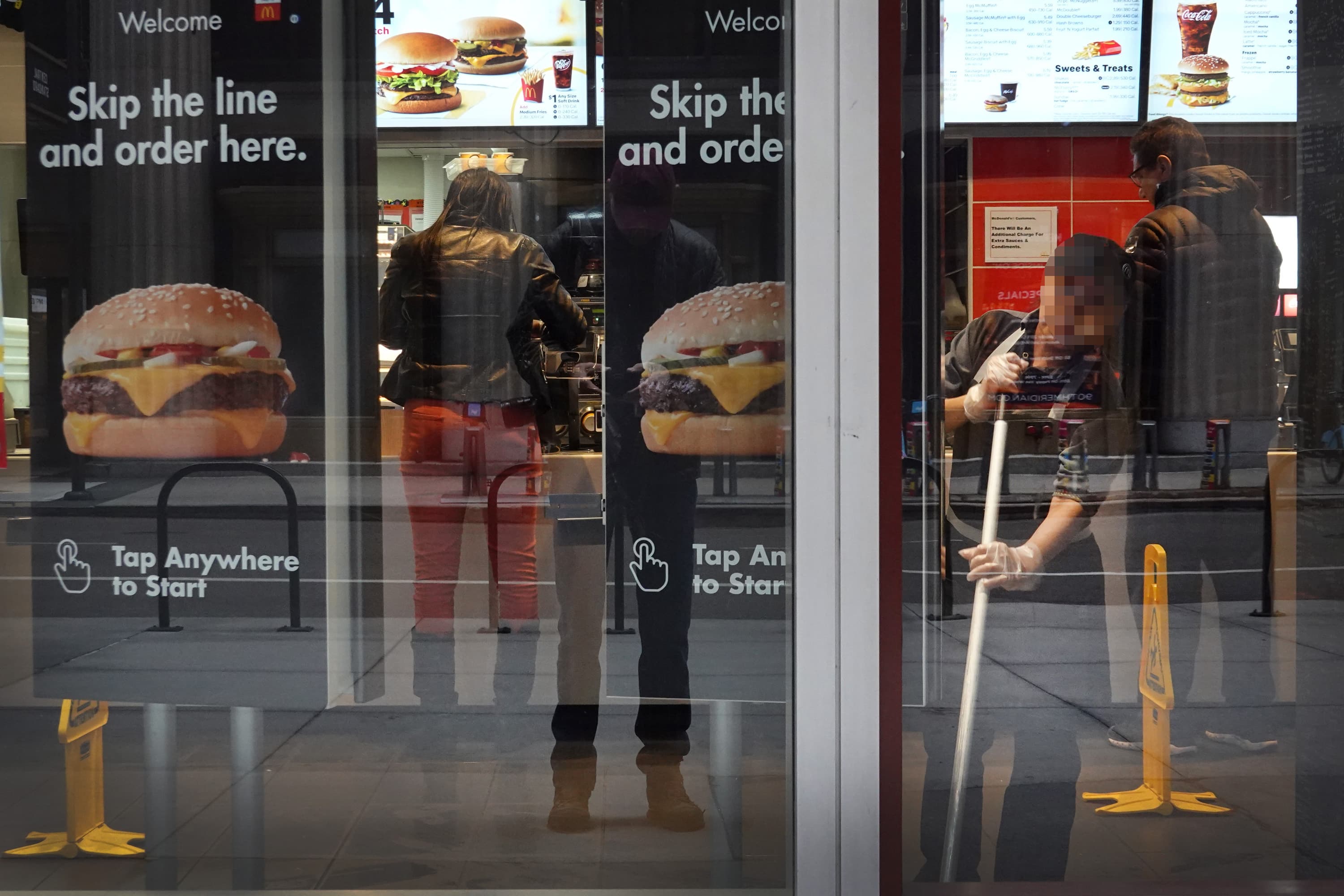A worker cleans the floor in a McDonald’s restaurant in the Chicago Loop on March 19, 2020 in Chicago, Illinois.
Scott Olson | Getty Images
McDonald’s is pausing its U.S. reopening plans for 21 days as coronavirus cases spike across the country.
States like Michigan, Colorado and Florida have been responding to the recent surge by delaying or rolling back efforts to reopen their economies. Tuesday marked the sixth day that the average number of new Covid-19 cases exceeded previous highs set in April, when some officials thought the U.S. reached its peak.
About 1,000 out of McDonald’s 14,000 U.S. locations have reopened with reduced seating capacity, as of mid-June.
Franchisees who have already reopened dining rooms and are not facing any rollbacks from local officials can decide if they want to keep them open.
“To be clear: owner/operators will make the final decision in these situations,” Joe Erlinger, head of McDonald’s U.S. division, and Mark Salebra, chair of the National Franchisee Leadership Alliance, wrote in a note to franchisees on Wednesday that was viewed by CNBC.
The two men also emphasized that franchisees should continue to be disciplined about safety measures, including wearing masks properly and adhering to wellness and temperature check procedures.
“This surge shows nobody is exempt from this virus – even places that previously had very few cases,” they wrote. “Moving forward, we will continue to monitor the situation and adjust as needed to protect the safety of our employees and customers.”
The Wall Street Journal first reported McDonald’s plans to halt reopenings.
